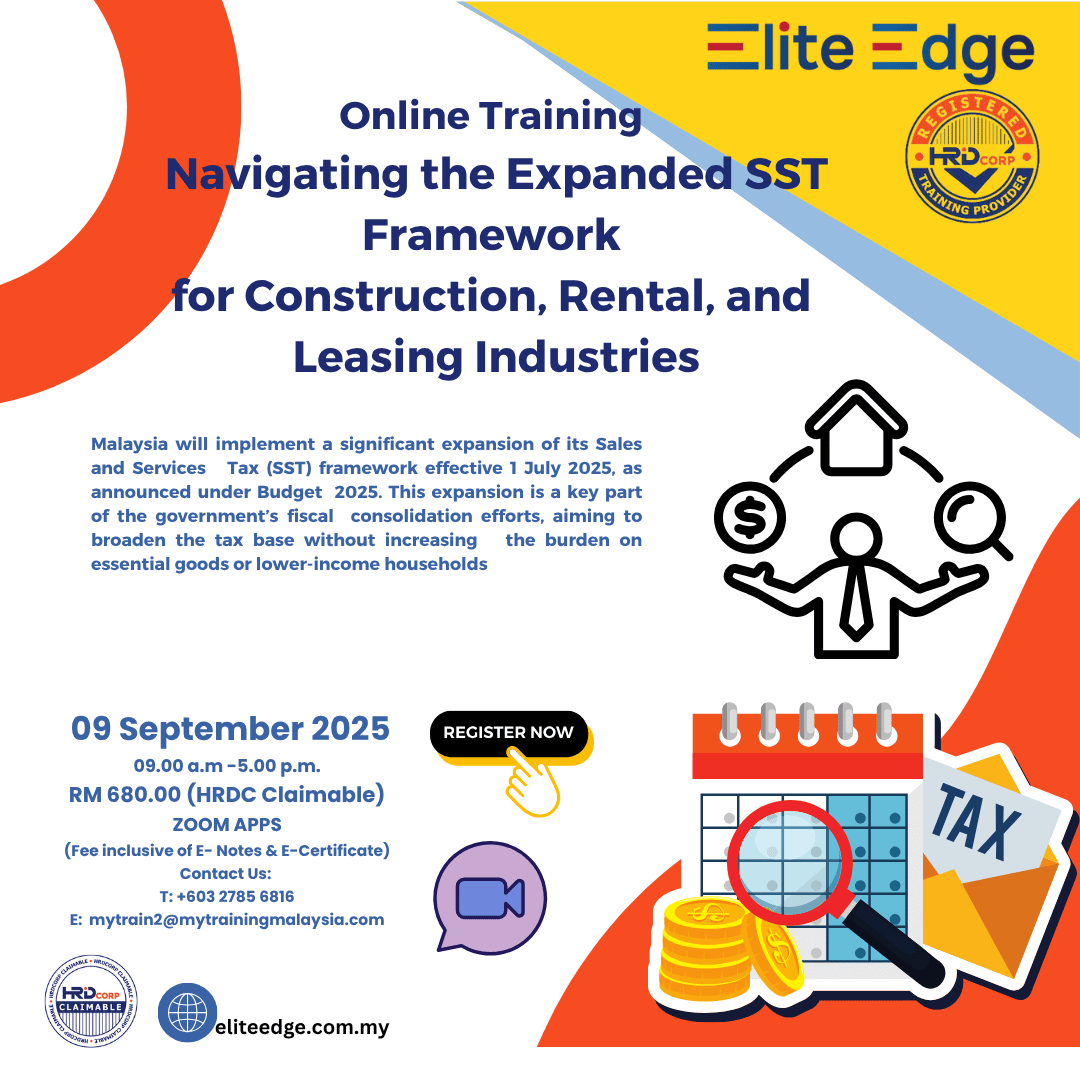INTRODUCTION
Effective 1 July 2025, Malaysia will implement a significant expansion of its Sales and Services Tax (SST) framework, as announced in Budget 2025. This measure forms part of the government’s fiscal consolidation strategy, aimed at broadening the tax base while minimising the burden on essential goods and lower-income households.
Under the revised framework, more services will be subject to service tax, with notable changes to:
- Registration thresholds
- Scope of taxable services
- Group relief provisions
- Treatment of imported and digital services
For businesses — especially in the construction, rental, and leasing sectors — these reforms bring about:
- New compliance requirements
- Expanded registration obligations
- Increased exposure to service tax liabilities
- Greater complexities in billing, documentation, and contract structuring
With heightened enforcement anticipated, understanding the industry-specific SST implications will be essential to ensure compliance, avoid costly penalties, and manage tax-related costs effectively.
This course is designed to equip industry players with the clarity, accuracy, and confidence needed to navigate the expanded SST landscape, safeguard business operations, and make informed tax decisions.




